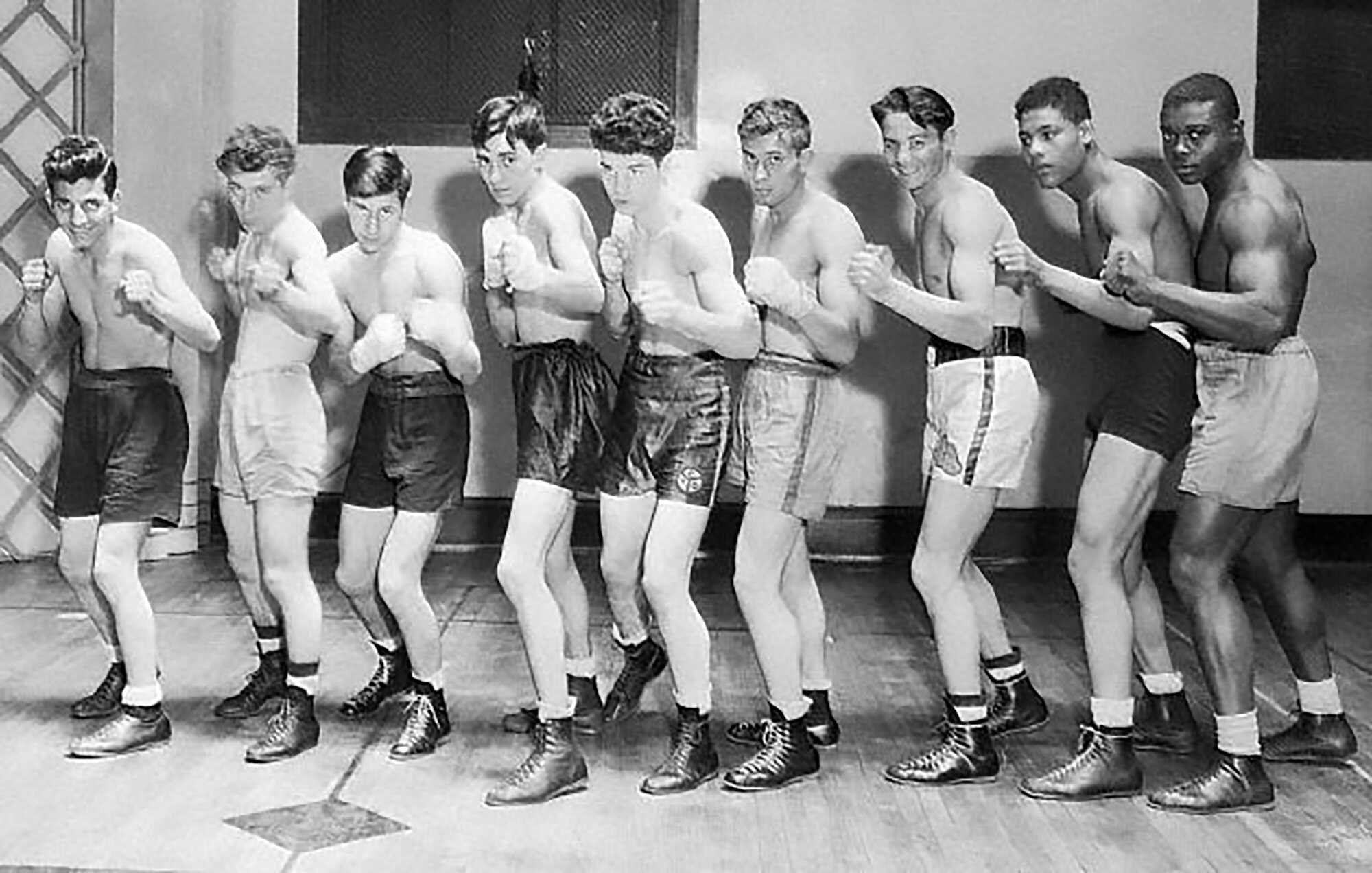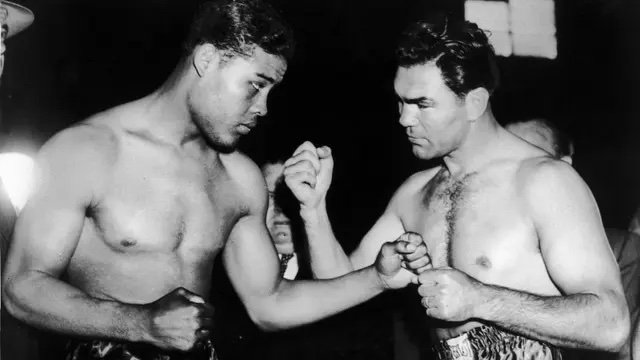
Iconic boxing career
Joe Louis was about 11-years-old when a friend introduced him to boxing. As a teenager, Louis gained a reputation as a top-flight amateur fighter. He dropped “Barrow” from his name, hoping to keep his boxing a secret from his mother.
Introducing to boxing
- Louis won 50 of 54 amateur fights, with 43 victories by knockout, making headlines in Detroit and the Midwest.
- His remarkable power, speed, and tactical mind led Louis to become one of the greatest boxers in history.
Mentorship and Early Professional Career
- Louis caught the attention of John Roxborough, head of the illegal gambling rackets in Detroit’s black communities.
- Roxborough offered Louis unique opportunities and training, promising to protect him from being exploited like other African American fighters.
- Roxborough brought in promoter Julian Black and trainer Jack Blackburn to groom Louis for greatness.
- Under Roxborough’s guidance, Louis attained record prize purses and built a public image that countered the negative stereotypes of black boxers.
Key Early Fights
- Louis’ first notable professional victories were against Italian giant Primo Carnera and American Max Baer, both former champions.
- The bout with Carnera had political undertones, as Carnera was promoted by Benito Mussolini as a symbol of fascist Italy. Louis won by knockout in the sixth round.
- Louis won 27 professional fights in a row, including 23 by knockout, but suffered a surprising loss to German Max Schmeling in 1936, delaying his title shot.
World Championship and Rematch with Schmeling
- Louis knocked out “Cinderella Man” James Braddock on June 22, 1937, to become the World Heavyweight Champion.
- The rematch with Schmeling in 1938 took on global significance as a clash of ideologies, with Louis representing democracy against the Nazi regime.
Military Service and Post-War Career
- During World War II, Louis enlisted in the Army and rose to the rank of sergeant, fighting exhibition matches and raising funds for the military.
Later Life and Legacy
- After retiring from boxing, Louis took on various jobs, including professional wrestling and working as a greeter at Caesar’s Palace in Las Vegas.
- Louis remained a respected figure, known for his kindness and generosity.
- Louis became close friends with Schmeling in later years.
- When Louis died on April 12, 1981, he was buried with full military honors at Arlington National Cemetery, recognized by President Ronald Reagan as a sports legend and an inspiration to people worldwide.
- Boxing Hall of Fame sports writer Jimmy Cannon famously remarked, “Yes, Joe Louis is a credit to his race — the human race.”
Source: National Museum of African American History and Culture

Coming in 2025:
Dive deeper into the remarkable life and legacy of Joe Louis with new stories and insights. Stay tuned!





